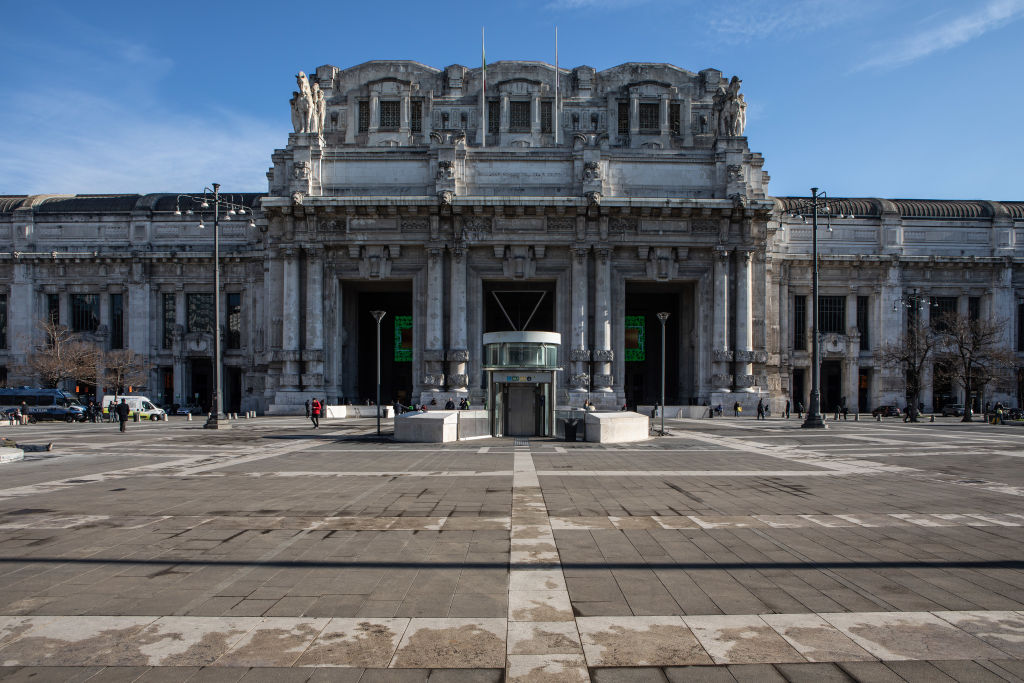Italy takes drastic measure of locking down northern economic hubs to curb coronavirus


A free daily email with the biggest news stories of the day – and the best features from TheWeek.com
You are now subscribed
Your newsletter sign-up was successful
The Italian government Sunday took the drastic measure of shutting down much of the country's north in an effort to curb the spread of the novel coronavirus behind COVID-19, restricting the movement of around 16 million people in places like Milan and Venice until at least April 3.
Italy now has more than 5,800 confirmed cases of COVID-19, and 233 people have died from the virus, the highest number of deaths outside China, where it originated. Most of those cases have occurred in Italy's northern regions, especially Lombardy, Emilia-Romagna, and Veneto, which combined account for 40 percent of the country's economic output and are home to many prominent tourism centers, so the restrictions will almost certainly damage the Italian economy in the short-term. Most public events will be canceled, including Mass, though churches will remain open. So will bars and restaurants, but patrons will be required to keep a safe distance from each other.
Some confusion remains about what the exact measures and nature of enforcement will be, and regional and local officials have complained the national government did not effectively communicate the plan before a draft leaked. The leak reportedly infuriated Prime Minister Giuseppe Conte, although he said regional leaders had indeed been consulted.
The Week
Escape your echo chamber. Get the facts behind the news, plus analysis from multiple perspectives.

Sign up for The Week's Free Newsletters
From our morning news briefing to a weekly Good News Newsletter, get the best of The Week delivered directly to your inbox.
From our morning news briefing to a weekly Good News Newsletter, get the best of The Week delivered directly to your inbox.
But while some people simply don't think a movement ban will work in Italy, others are ready to make the sacrifice. "In China, they are more rigid," Miriam Ben Cheikh Amor, a 26-year-old waitress, told The New York Times. "Maybe we need some of that too." Read more at The New York Times and The Wall Street Journal.
A free daily email with the biggest news stories of the day – and the best features from TheWeek.com
Tim is a staff writer at The Week and has contributed to Bedford and Bowery and The New York Transatlantic. He is a graduate of Occidental College and NYU's journalism school. Tim enjoys writing about baseball, Europe, and extinct megafauna. He lives in New York City.
-
 American universities are losing ground to their foreign counterparts
American universities are losing ground to their foreign counterpartsThe Explainer While Harvard is still near the top, other colleges have slipped
-
 How to navigate dating apps to find ‘the one’
How to navigate dating apps to find ‘the one’The Week Recommends Put an end to endless swiping and make real romantic connections
-
 Elon Musk’s pivot from Mars to the moon
Elon Musk’s pivot from Mars to the moonIn the Spotlight SpaceX shifts focus with IPO approaching
-
 TikTok secures deal to remain in US
TikTok secures deal to remain in USSpeed Read ByteDance will form a US version of the popular video-sharing platform
-
 Unemployment rate ticks up amid fall job losses
Unemployment rate ticks up amid fall job lossesSpeed Read Data released by the Commerce Department indicates ‘one of the weakest American labor markets in years’
-
 US mints final penny after 232-year run
US mints final penny after 232-year runSpeed Read Production of the one-cent coin has ended
-
 Warner Bros. explores sale amid Paramount bids
Warner Bros. explores sale amid Paramount bidsSpeed Read The media giant, home to HBO and DC Studios, has received interest from multiple buying parties
-
 Gold tops $4K per ounce, signaling financial unease
Gold tops $4K per ounce, signaling financial uneaseSpeed Read Investors are worried about President Donald Trump’s trade war
-
 Electronic Arts to go private in record $55B deal
Electronic Arts to go private in record $55B dealspeed read The video game giant is behind ‘The Sims’ and ‘Madden NFL’
-
 New York court tosses Trump's $500M fraud fine
New York court tosses Trump's $500M fraud fineSpeed Read A divided appeals court threw out a hefty penalty against President Trump for fraudulently inflating his wealth
-
 Trump said to seek government stake in Intel
Trump said to seek government stake in IntelSpeed Read The president and Intel CEO Lip-Bu Tan reportedly discussed the proposal at a recent meeting
